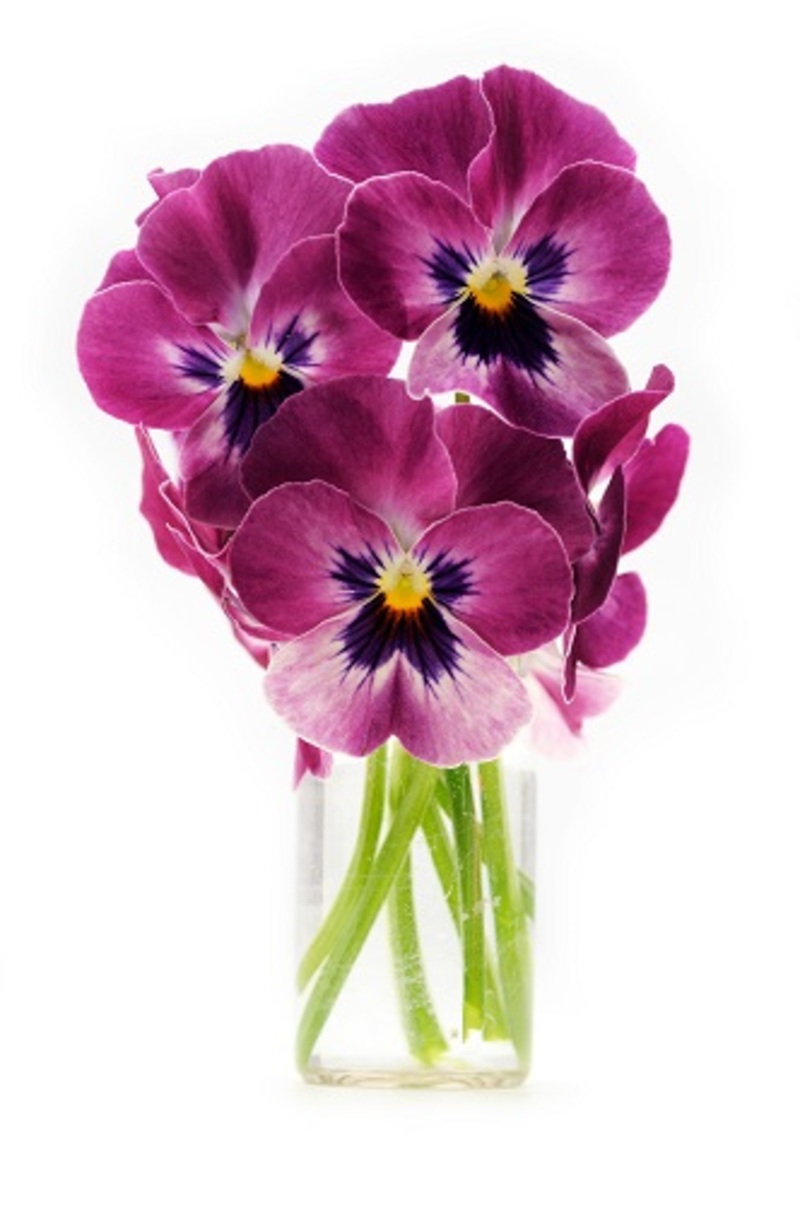Top Tips for Making Your Poinsettias Last Longer
Posted on 22/08/2025
Top Tips for Making Your Poinsettias Last Longer
Poinsettias are iconic holiday plants that brighten up homes and offices with their vibrant red, pink, or white bracts. However, many people struggle to keep these beauties thriving beyond the festive season. If you've ever wondered how to make poinsettias last longer, you're not alone. In this comprehensive guide, you'll discover how to properly care for your poinsettias, preserve their stunning color, and even encourage them to rebloom year after year. Follow these expert tips to enjoy your poinsettias well beyond the holidays!
Understanding Your Poinsettia: The Basics
Before delving into care tips, it's essential to understand what makes poinsettias unique. Native to Mexico and Central America, poinsettias (Euphorbia pulcherrima) are popular for their colorful bracts (often mistaken for flowers). The true flowers are the tiny clusters at the center of each bract, called cyathia.
- Scientific name: Euphorbia pulcherrima
- Common colors: Red, pink, white, marbled, and more
- Blooming period: Late fall through winter
- Native habitat: Warm, tropical climates

1. Choose Healthy Plants from the Start
The secret to long-lasting poinsettias starts at the point of purchase. Here's what to look for when selecting a plant:
- Vibrant, intact bracts: Avoid plants with wilted, damaged, or spotted leaves.
- Compact shape: Choose full, bushy plants with dense foliage.
- Check the flowers: Select poinsettias with some unopened cyathia (the yellow cluster at the center). Open cyathia mean the blooming phase is advanced and the color will fade sooner.
- No signs of pests: Inspect the undersides of leaves for signs of insects or sticky residue.
Tip: A healthy poinsettia is more likely to last longer and stay vibrant throughout the season!
2. Protect Poinsettias from Cold
Poinsettias are sensitive to temperature fluctuations and drafts. During transportation, wrap your plant in a protective paper sleeve to shield it from cold air. Once home:
- Keep poinsettias in mild temperatures: Ideal daytime temperatures are 65-70?F (18-21?C). Night temperatures should not drop below 60?F (15?C).
- Avoid cold drafts: Keep poinsettias away from windows, exterior doors, or cold surfaces.
- Do not expose to frost: Even brief exposure can cause irreparable damage and leaf drop.
A steady, warm environment is crucial for long-lasting poinsettia displays.
3. Light Requirements for Healthy Poinsettias
Poinsettias need bright, indirect light to thrive and retain their vibrant hues. Here's how to get it right:
- Position near a window: Place your poinsettia near a sunny window (east or west-facing is ideal) but avoid direct midday sun, which can scorch the leaves.
- Rotate regularly: Turn your poinsettia occasionally so all sides receive light and grow evenly.
- Supplement with artificial light: In dark winter climates, a standard grow light or LED lamp can help keep your poinsettia looking its best.
4. The Right Watering Technique
Overwatering and underwatering are common culprits for short-lived poinsettias. Follow these tips for optimum moisture:
- Check the soil before watering: Stick your finger about 1 inch into the soil. If it feels dry, it's time to water; if it's still damp, wait a day or two.
- Water thoroughly but don't drown: Add water until it starts to drain from the bottom. Empty any excess water from saucers or decorative wraps; poinsettias hate standing in water.
- Avoid water on leaves: Wet leaves can cause disease or spotting. Pour water directly onto the soil.
Tip: Poinsettias in plastic or foil-wrapped pots are especially prone to root rot. Ensure there is good drainage to make your poinsettias last longer!
5. Humidity Matters
Home heating can dry out the air in winter, making it tough for poinsettias to retain moisture and vitality. To counteract dryness:
- Mist regularly: Lightly mist the plants' leaves with water (not on bracts/flowers) once a day.
- Use a humidity tray: Place a shallow tray filled with pebbles and water near your plant, but avoid letting the pot sit directly in water.
- Group plants together: Cluster several houseplants to help maintain a localized, more humid microclimate.
6. Fertilizing for Lasting Color
While poinsettias don't need fertilizer while blooming, it does help if you want to keep the plant beyond the holidays or encourage reblooming:
- Wait until after blooming: Start fertilizing when new growth appears in late winter or early spring.
- Use a balanced fertilizer: Choose a general-purpose houseplant fertilizer, diluted to half strength.
- Feed monthly: Fertilize once a month during the growing season (spring and summer).
Proper nutrition is key to making your poinsettia last beyond one season!
7. Avoiding Common Poinsettia Problems
Poinsettias can fall victim to a few common problems that cut their beauty short:
- Leaf Drop: Caused by temperature swings, drafts, root rot, or sudden changes in light.
- Yellowing Leaves: Overwatering or underwatering is usually to blame.
- Pests: Watch for whiteflies, fungus gnats, mealybugs, and scale. Gently wipe leaves or use insecticidal soap.
If you notice your poinsettia not lasting as long as desired, addressing these issues quickly is essential.
8. Reblooming: Making Your Poinsettias Last Year After Year
Did you know you can make poinsettias last for years and rebloom every holiday season? With a bit of extra effort, it's possible! Here's how:
Early Spring Care
- After the holidays, keep watering until the colorful bracts fade.
- When bracts drop, cut the stems back to about 6 inches and continue to keep in bright, indirect light.
- Repot if the plant has outgrown its container.
Summer Care
- Place your plant outdoors (in a shaded area) once nighttime temperatures consistently stay above 60?F (15?C).
- Water and fertilize monthly.
- Pinch back shoots in June and early August for a bushier shape.
Fall: Forcing Color and Blooms
Poinsettias are "short-day" plants, needing long, dark nights (at least 14 hours) for 8-10 weeks to set colorful bracts.
- From October onwards: Every evening, cover your plant with a light-proof box or place it in a dark closet from 5 pm to 8 am.
- Uncover during the day: Provide bright, indirect sunlight from 8 am to 5 pm.
- Repeat daily: After 8-10 weeks, you should see the bracts coloring up just in time for the holidays!
With patience and careful attention, you can make poinsettias rebloom every year and enjoy their vibrant displays season after season.
9. Sustainable and Decorative Uses for Longevity
Making your poinsettias last longer isn't only about care--it's also about resilient decorating. Try these tips for beautiful, lasting displays:
- Group with plants of similar needs: Poinsettias look gorgeous with wintergreen, cyclamen, or ferns.
- Use decorative containers with drainage: Elevate your poinsettia pots to keep excess water away from roots.
- Rotate displays: To prolong plant life, rotate your poinsettias between high-traffic display areas and restful "recovery" spots with perfect care conditions.
- Compost or plant outdoors: In frost-free climates, poinsettias can become part of your outdoor landscape after the holidays.
10. Bonus: Pet Safety and Holiday Care
Many people worry that poinsettias are highly toxic to pets. The reality is poinsettias are only mildly irritating if ingested. If a dog or cat nibbles the leaves, symptoms might include mild drooling or vomiting.
- Keep out of reach of curious pets and kids to be safe.
- Clean up fallen leaves promptly to avoid accidental ingestion.
Tip: For homes with highly sensitive pets, select alternative safe festive plants such as spider plants or orchids.
Key Takeaways: Summary of Poinsettia Longevity Tips
- Start with a healthy plant for a strong foundation
- Keep poinsettias warm and avoid drafts or cold air
- Provide bright, indirect light for color retention
- Water carefully and avoid root rot
- Maintain humidity around your plants during winter
- Fertilize only after the main blooming period
- Be proactive with pests and disease
- Try reblooming for a long-lasting holiday tradition

Frequently Asked Questions on Poinsettia Longevity
How long do poinsettias typically last indoors?
With proper care, poinsettias can last 6-8 weeks indoors in their best color. However, careful watering and correct light can make them thrive into spring, or even year after year if rebloomed.
Should I mist my poinsettia every day?
Leaf drop is usually caused by temperature shock, overwatering, drafts, or sudden change of environment. Adjust your care, and your plant may recover.
Poinsettias don't have to fade away with the end of the holidays. With these essential tips for making your poinsettia last longer, you can enjoy their joyful colors for months--or even years! Choose healthy plants, provide the right environment, and follow consistent care for vivid, vibrant displays that make your festive decor unforgettable. These timeless tips will keep your poinsettias beautiful and thriving, holiday after holiday.
Unveil the Secrets of the Top 12 Long-Lasting Flowers Office Greenery: Best Low-Maintenance Plant Choices Top Tips for Making Your Poinsettias Last LongerWhy are my poinsettia's leaves falling off?
Conclusion: Enjoy Longer-Lasting Poinsettias All Season Long!
Latest Posts





